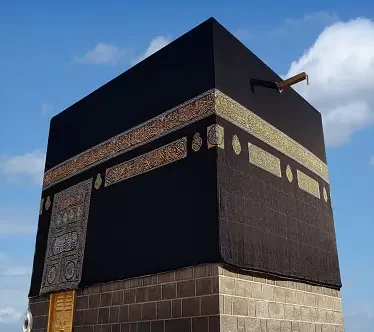Understanding the Insights for Sacrifice and Preparations
Insights for Sacrifice hold immense significance in Islam, especially during the blessed month of Dhul-Hijjah. It symbolizes devotion and gratitude, demonstrating the willingness to give back to the community and share blessings. In this section, we’ll delve into the importance of sacrifice and the preparations that precede this significant act.
Clarifying the Prohibition: Shaving and Cutting During Dhul-Hijjah
During the first ten days of Dhul-Hijjah, it’s fundamental to refrain from shaving or cutting. Exploring the hadith of Prophet Muhammad (peace be upon him), we’ll clarify the specific actions that are restricted during this period and shed light on the significance behind this prohibition.
Combing and Sacrifice: Addressing Permissible Actions
Contrary to the prohibition on shaving and cutting, combing the hair is not considered a prohibited act during the first ten days of Dhul-Hijjah. We will examine the teachings of Prophet Muhammad (peace be upon him) and scholarly interpretations to clarify that grooming and hair care, including combing, remain permissible and are not in violation of the prescribed restrictions.
Washing and Preparing for Sacrifice: Rituals and Permissibility
Maintaining personal hygiene is crucial, especially during religious observances. Exploring the teachings of Islam, we will elaborate on the permissibility of washing and preparing oneself for sacrifice during the first ten days of Dhul-Hijjah, ensuring a clear understanding of the practices that align with religious guidelines.
Combining Devotion and Personal Care: Achieving the Right Balance
Finding a balance between fulfilling religious obligations and maintaining personal care is essential for believers. In this section, we will emphasize the importance of combining devotion with proper grooming and hygiene practices, ensuring that individuals can observe their religious duties while also taking care of their well-being during the sacred period of Dhul-Hijjah.
Understanding the guidelines and practices associated with sacrifice preparation is crucial for Muslims observing the first ten days of Dhul-Hijjah. By clarifying the permissible actions related to hair care and personal hygiene, this blog aims to provide valuable insights, enabling believers to navigate this auspicious time with a clear understanding of their religious duties and practices. Sacrifice is a fundamental act of devotion, and being well-informed about the related guidelines ensures that this act is performed in accordance with the teachings of Islam, reflecting the true spirit of unity, gratitude, and giving back to the community.
Understanding Hair Care in Dhul-Hijjah: Permissibility and Practices
In the Islamic calendar, the month of Dhul-Hijjah holds great religious significance. During this time, many Muslims participate in Hajj and engage in sacrificial rituals. However, questions often arise regarding personal care, particularly combing one’s hair. In this blog post, we aim to address these concerns and shed light on the permissibility of hair care practices during Dhul-Hijjah.
The Permissibility of Combing Hair
One common query is whether combing hair is allowed during Dhul-Hijjah. The answer is clear: yes, it is entirely permissible. Islam encourages personal hygiene and grooming. Careful hair combing is not prohibited during this time. If a hair happens to fall during the process, it does not diminish the rewards of any sacrifice.
Addressing Concerns about Sacrificial Rituals
A prevalent concern is whether personal physical conditions, such as boils or the loss of nails, would hinder an individual from offering a sacrifice. It’s essential to understand that these conditions do not prevent a person from fulfilling their sacrificial obligation. Even if someone intending to offer a sacrifice is facing such physical ailments, they are still eligible to perform the sacrifice and receive the full rewards associated with it.
The Wisdom Behind the Permissibility
Islam emphasizes practicality and ease for its followers. Allowing individuals to maintain their hair reinforces this principle of cleanliness and well-being while engaging in religious practices. The permissibility of combing hair during Dhul-Hijjah aligns with this principle, encouraging cleanliness and personal care while upholding religious values.
Balancing Spiritual Duties and Personal Care
Islam teaches believers to strike a balance between their religious obligations and personal care. This balance is crucial, particularly during significant months like Dhul-Hijjah. Combing hair is a simple act of personal care that does not impede or conflict with one’s religious duties, including the sacrificial rituals during this sacred time. Striking a balance between spiritual responsibilities and personal care is key to a fulfilling religious experience.
It is entirely permissible to comb hair during the month of Dhul-Hijjah. Islam encourages personal hygiene and grooming. The act of combing does not diminish the rewards of any sacrifices or rituals associated with this auspicious month. Believers should strive to strike a balance between their spiritual responsibilities and personal care, upholding the values of cleanliness and devotion as they observe the sacred month of Dhul-Hijjah.
Empowering Women in Religious Sacrifice: Understanding the Rules of Animal Slaughter
Performing animal sacrifices is a crucial ritual in Islam, often tied to significant religious events. However, a common question arises regarding whether women can actively engage in this act of worship. In this blog post, we will explore the permissibility of women participating in the sacrificial ritual when circumstances necessitate it.
When There’s No Male Present: Can a Woman Perform the Sacrifice?
It’s not uncommon for situations to arise where a male member might not be available to perform the ritual sacrifice. During such times, it’s essential to know whether a woman can take on this responsibility. The answer is yes, given that all other conditions for animal slaughter are met.
Understanding the Conditions for Animal Slaughter
The ritual slaughter of an animal involves certain conditions, including uttering the name of the person on whose behalf the sacrifice is made. This individual can be alive or deceased. However, if stating the name is not possible, intending the sacrifice for the person suffices. Even if a mistake is made in uttering the name, Allah, in His understanding of intentions, overlooks errors, emphasizing the importance of sincerity in the act.
Ensuring Compliance with Religious Norms
In Islam, it’s vital to ensure that the sacrifice adheres to the religious norms and guidelines. The person performing the slaughter, whether a man or a woman, should understand the proper procedures and requirements for a valid sacrifice. This includes following the rules regarding the choice of animals, the act of sacrifice, and the distribution of meat among those in need.
Promoting Gender Equality in Religious Practices
Allowing women to participate in the ritual sacrifice promotes gender equality in religious practices. Islam encourages both men and women to actively engage in acts of worship and rituals. By enabling women to perform the sacrificial ritual when necessary, the religion reinforces the principle of equal participation and responsibility within the community.
Islam permits women to perform the ritual sacrifice of animals when circumstances necessitate and all other conditions are met. The religion emphasizes the importance of intention and adherence to the required guidelines, ensuring that the act is conducted with sincerity and in compliance with religious norms. Promoting gender equality in religious practices, Islam encourages active participation by both men and women, underscoring the significance of shared responsibilities and involvement within the community.
More Fact: Hajj Rituals

